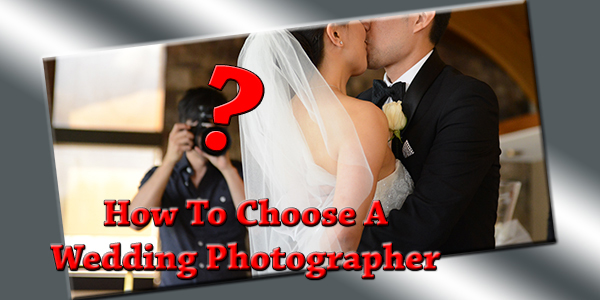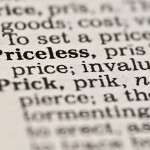
How To Choose A Wedding Photographer
Wedding memories last a lifetime, but so can the regret of choosing the wrong photographer. The right wedding photographer will capture the most precious memories on your special day for you to gasp in awe, to share with loved ones, and to relive over and over again with your partner years down the road…
So, how can you tell if you are choosing the “right” wedding photographer? While there is no guarantee, there are tell tales of who is likely the “wrong” photographer and great indicators of who may the “right” photographer for you.
Before you even start looking for a wedding photographer, ask yourself a few questions to help narrow down your search:
- What kind of photography do I want?
- This is the foundational key to your search. Different photographers excel at different types of photography. Before you spend thousands of dollars (possibly tens of thousands), doesn’t it make sense to ensure you know what you are looking for first. Don’t you have an idea of what kind of car you want to buy before you walk in to a dealership?
- Things to consider:
- Artistic Style/ Impression (classic or traditional, modern, sensual, cinematic, photojournalism, illustrative, etc)
- Studio shots and/or Site Location shots
- Candid and/or Posed
- Digital or Film photos (less of a choice nowadays)
- What is my real budget?
- Give yourself a realistic price range and be sure to know exactly what your absolute limit is. Do not bother searching beyond your set limit (save yourself the added stress)
- Details to consider related to photographer pricing:
- How many locations you need your photographer for on the day. Do you want him there from the moment you wake up and start prepping to the last drink call of the night? Some photographers provide price packages based on a combination of number of locations required, duration of effort, and/or number of photographs taken.
- Do you want professionally printed albums? Generally, most photographers have their own preferred print shop to produce quality one off photos as well as gorgeous leather-bound photo albums or other types of albums. Often photographers provide this as an added paid service, acting as the middle-man between these trusted print shops and the bride and groom. Ask to see an in-hand sample of any album packages offered.
- Cost of purchasing the copyrights to the original digital photographs (so you can view and print as you please yourself). If this photographer does not release the copyrights, then ask how much it costs to get prints through him in every size offered.
- Is there a deposit payment required and when is it?
- When is the balance of the payment due?
- Cancellation policy and associated cancellation fees?
Signs of a good wedding photographer:
- Photographer wants to do a pre-wedding photo session with the happy couple. Often, this is called an engagement session where you and your partner are photographed in a more casual setting and atmosphere. Why is this important to both you and the photographer?
- You may not even be aware of this, but a true professional photographer will use this opportunity to really prepare himself for the BEST actual wedding day photo session possible by:
- Profiling your most attractive facial angles.
- Detailing the photographic chemistry between you and your partner (ie. what triggers a spark, smile, lasting stare, kiss, shyful smirk, etc).
- Testing to see if you are an obsessive blinker, have inattentive glares, or any awkward tendencies.
- Gauging how adventurous you are in front of the camera (ie. is kissing in public too awkward for you?)
- Realizing if you have a natural camera smile or should be shooting more smile-less expression captures.
- Building a better client relationship.
- You and your partner should use this as an opportunity to:
- Get more comfortable with the photographer. After all he/she will be like a third wheel on the big day.
- Indicate if there are any special cultural customs or ceremonial themes that he should be aware of and prepared to capture on his camera on the wedding day. This would be a great time to announce any special requests for interesting, funny or your own thought up poses.
- Ask questions about anything you are concerned about.
- You may not even be aware of this, but a true professional photographer will use this opportunity to really prepare himself for the BEST actual wedding day photo session possible by:
- Photographer is interested in knowing your entire chronological wedding day agenda way ahead of time. This means they are consciously planning exactly where and when to take the most important and precious photos. Timing is everything and not planning ahead can mean a monumental missed photograph. You want to relive all the special moments of your wedding day so missing such a shot should be unacceptable. All weddings have their own intricacies, whether it be driven by ethnic customs, parental influences, bridezilla demands, etc. An experience wedding photographer will ask ahead of time to ensure they are on top of everything that can be controlled.
- Things that cannot be controlled such as weather are discussed ahead of time. The photographer should have an entire backup plan ready if your plan A was to take photos outdoors and it happens to start raining profusely. Ensure you and your partner ask your photographer what his plan B is and are comfortable with it if it is required.
- Photographer is assertive (not overly aggressive) and pleasant in nature and demeanor. Yes, he may need to ask dear old granny to move aside because she happens to be standing in the prime location to take the ideal photograph, but he doesn’t have to be a jerk about it. You want your wedding day to be enjoyable for you and your guests. Your photographer will contribute to the ambiance of your special day as he will be directing people in an orderly fashion to attain the best photographs and also to help you stay on schedule with your agenda.
- Word of mouth referrals from family / friends / acquaintances who have hired this photographer before. It is always reassuring to hear positive reviews from people you know, but not necessarily an absolute indicator that you have similar tastes. Where possible, as your source if you can see the complete wedding photo portfolio experience they had with this photographer. After this, it may be a very easy decision for you.
- Photographer has an assistant or secondary photographer to take additional photographs on your wedding day. Again, a true professional will try to be there for every special moment that needs to be captured on film, but he admittedly accepts that he cannot be everywhere necessary at once. Whether he settles for this inevitability or proactively combats it will aid you in determining if he is truly worthy to be your wedding photographer. While a primary photographer is generally busy trailing the bride and/or groom, a secondary photographer generally helps:
- Take candid photos of spontaneous events happening away from the bride and groom. These types of photographs are generally well received by the bride and groom when they reflect back on the day because they capture special moments that you yourself were not even aware of during the hectic day. (ie. tears of joy from friend and families, kids laughing and playing, humorous antics, etc).
- Take some artistic photographs such as extreme macro closeups of the engagement rings, shoes, wedding dress, etc.
- Overall captures different angles of the primary photographer’s must-have shots to increase the likelihood of the best photographic results.
- Photographer is picky about where you print “his” photographs. A true artist is extremely proud of his work and if you say that you are going to print all your photos at the local Wal-Mart, he may not be pleased. After all, although the photos are of you, each image is still a reflection of your photographer. If your photographer has such pride in his work, it means he really cares about how amazing his photos are as opposed to just getting a few bucks from you. This subtly translates in to the likelihood of better photographs for you. Most photographers can direct you to an accessible local print shop that produces excellent prints.
- Photographer is equipped with professional photography gear. This one might be harder for you to judge yourself unless you are familiar with the technology details of photography equipment, but a few general questions you might want to ask:
- How many camera bodies do you use?
- Professionals use multiple cameras with fixed lenses on them for quick spontaneous switching rather than having to pop a lens on and off and miss the shot. Also, your photographer should always have a backup camera in case his primary one fails as well as backup memory cards.
- Are your cameras Full Frame or APS-C format?
- Full Frame cameras capture more detail and are typically better quality than APS-C format cameras. At a minimum your photographers primary camera body should be a Full Frame format.
- What types of lenses do you use?
- Different lenses are optimal for different types of photographs and scenarios. Again, another technical measure, but in general if your photographer is using constant aperture lenses between f/1.2 – f/2.8 then you can expect better quality photos.
- What type of lighting equipment will you use?
- Lighting is paramount in photography. A professional photographer know this well and be prepared with flashes, wireless triggers and strobes / light boxes.
- How many camera bodies do you use?
- Photographer does professional post-processing (enhancements and touch ups). Whether you are a professional or not, a bit of light post-processing enhancement can generally improve the result of your photographs. Depending on the degree of post-processing this can take a lot of time, effort and creative skill, but the payout can be glorious! Some of the best wedding photographers out there not only have the creative eye for taking the original shot, but also the creative genius to take that original photograph and transform it into an amazing work of art. On the other end of the spectrum, the last thing you want to ruin a great photo is a zit, an untimely blink or light reflection, etc… Professional post processing touch ups can save this otherwise tragic loss of a perfect priceless photo.
Things to beware of: (Signs of an amateur photographer)
- Photographer who asks you how much other photographer you have met are quoting you. A professional photographer knows exactly how much they are worth. They are not afraid of the competition. You will find the best photographers will not budge much on their prices because they know the quality of their work is in an elite class and the demand for his services is there. Lesser photographers will heavily discount their work and be scared off by competition and you should be cautious of what you are getting.
- Photographer who only utilizes consumer grade equipment. If the photographer tells you he only uses an APS-C format camera body and an all-purpose zoom lenses such as an 18mm-200mm f3.5-f6.3 lens, then move on. It’s not that such equipment is not capable of taking some decent images, but I would be extremely weary of paying hard earned dollars for a “professional” that is using inferior photography gear than your regular invited guests bring for free…
- Photographer who relies only on natural light. Don’t get me wrong, natural light produces some of the most flattering and astounding photographs, but a wedding photographer who relies solely on this phenomena is literally not equipped to capture all your precious moments. Throughout the wedding day you are bound to be in some kind of situation where natural light is not readily available (ie. inside a church, inside a hall, any night event, etc). A profession wedding photographer will have the right lighting gear on hand ready to deal with these situations.
Additional Tips / Deciding Factors:
- Size matters… All joking aside and not to be physically insensitive here, but a few things to point out for consideration:
- Very short photographers
- More difficult to shoot over crowds or even see that he may be missing a potential great photo opportunity.
- More likely to catch a double chin in your photos if you and your partner are taller based on proportionate angles.
- Very hefty photographers
- Unable to cram into tight spaces or easily fit between the crowd to take a necessary shot.
- Less agile and able to sprint in anticipation to the ideal angled spot for that split second photograph (ie. kisses, bouquet toss, dancing, candids, etc).
- More in the way of your guests trying to take photographs at the same time. Parts of him may end up in many of your guests’ personal photographs.
- Very short photographers
- If you are going to have your photographer at your dinner reception, you might want to reserve a spot for him at a table close to the head table so he is readily available for candid and formal captures. Supplying him with a meal is always a nice gesture, as long as he is more keen on getting the perfect shot rather than chomping on dessert.
- Sometimes having a photographer that speaks a certain language can make or break the deal. If your family and friends only understands a certain language, it will be difficult for a photographer that doesn’t speak this language to control the crowd and/or hear the cues for the potential moments he needs to capture.
- Ask for references and actually call them with specific questions. Expect any references offered to be pre-screened by the photographer, just like you would when you provide an employer your job references. If the reference claims the photographer is great, then ask them to quantify in-depth what they mean by “great”.
- Ask to see a complete portfolio of their work. Do not settle for viewing a sample of their work. Samples are like job references too. Your photographer will have his best captures ready to advertise to his clients, but what you really need to see in order to properly assess his abilities is and end to end complete wedding day portfolio. Most photographers nowadays have websites with samples available, but again only the few chosen samples will be readily available.
- Ask to see if this photographer has experience shooting at the venue(s) you have booked for your wedding. If he has, he probably already knows which are the best areas for great photos. Feel free to ask him for details instead of accepting a bluff “yes” answer.
- Search for client reviews online for this photographer. Be cautious of this one as what you read online may not always be a valid review. It could be self promotion or slander from a competitor.
I hope you found this article interesting and it helps you make your wedding day even more special! I would be happy to hear any comments or suggestions you have.
Also, please feel free to share any additional tell tale measures for finding a great wedding photographer, avoiding the amateur pretending to be a pro, or other tips and deciding factors… 🙂





